Food Preservation – Summer’s Bounty for Winter’s Scarcity
Now is the time to preserve food for the coming winter. When it comes to putting by your garden produce or farmer’s market bounty for winter use there are several approaches. My rule of thumb is to preserve food in the state that my family is most likely to consume.
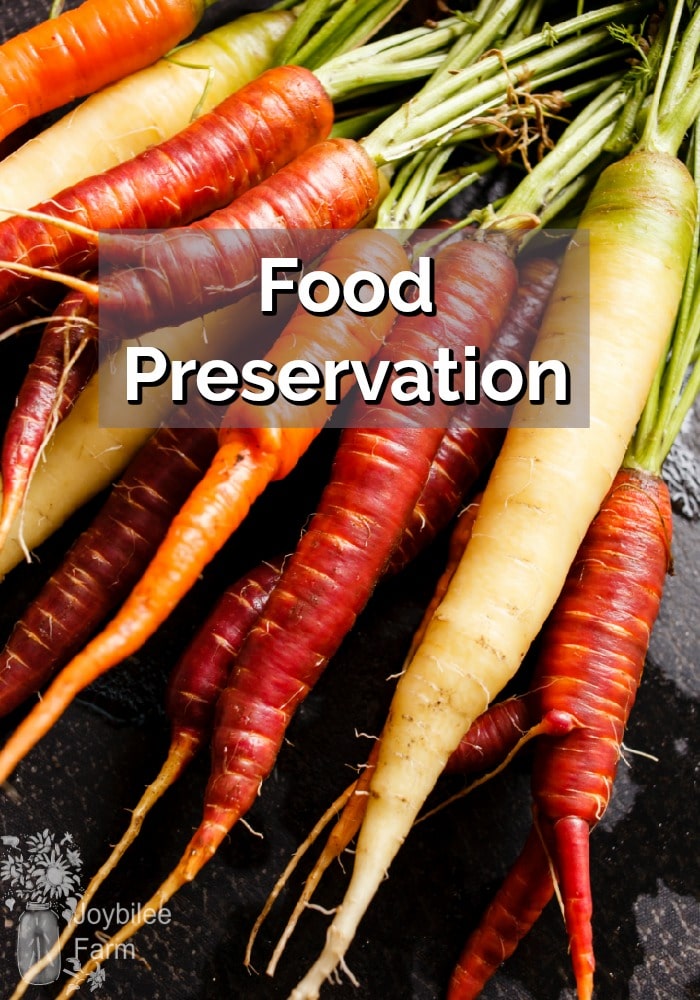
Remember Y2K?
Remember the Y2K fiasco? Thousands of people purchased canned and dehydrated foods to stock up for a 3-year life-as-we-know-it-will-end-crisis. On January 15th, 2000 a lot of that food was given away to homeless shelters and food banks. People invested in food that their own family wouldn’t dream of eating — except in a time of starvation — because they were afraid.
Our own family did stock up on staples — but the staples we stocked up on were the ones that we eat every day — rice, flour, sugar, kidney beans, garbanzo beans, and lentils. I planted a bigger garden in 1999. I canned a few more tomatoes that fall and was more conscientious in my jam making, just in case. These are things I do every Fall anyway, and I thought that if there was a crisis, we might need to share with those who weren’t prepared. The 50 lb. bags of beans took longer than the winter of 2000 to eat, but they did get eaten in chilli, hummus, falafel, and stews over several winters.
Since Y2K, there seems to be an annual outcry from a certain sector to stock up on emergency food — by supporting businesses, in a certain sector, — for emergency preparedness. Some people buy into the fear and lay their credit cards on the line. Others ignore the call for preparation. Both responses are extreme.
I suggest a moderate approach to preparedness. Every summer, when the seasonal food is plentiful and inexpensive, buy from local farms and preserve the bounty. Purchase staples from your local bulk food store, food co-op, or health food store in large bags and store them for winter. Only buy food that your family actually eats. I won’t buy eggplant and I won’t be canning dill pickles — these are two foods that my family ignores. But I will can over 400 lbs. of tomatoes into salsa, tomato sauce, and stewed tomatoes, as I do every year.
Prepare in summer for winter’s scarcity
This is age-old wisdom. Prepare in summer for winter and scarcity. Our grandmothers did it. Our great grandmothers did it. It was common practice before the industrialization of our food supply. If you are prepared for winter, other emergencies — earthquakes, tsunamis, floods, hurricanes — will not catch you unprepared.
But isn’t that hoarding food? No, preparing for winter is what every wise rural family does — putting by in a time of plenty for a time of scarcity. It is prudent. It doesn’t take anything away from others who also want to store food — food is plentiful when you are storing food. Food left unpurchased is wasted and will just be composted by the farm.
There’s only a 3 day supply in the grocery store
Your grocery store has a 3 day supply of fresh food on hand and about a 7 day supply of staples. If the store is cut off from its supply chain, the food it has will quickly run out. By not storing for winter, not only do you put your own family at risk, but you impede others, who didn’t have the means or foresight to prepare, from purchasing essentials in a crisis.
When you stock up in summer, while food is in its peak season, you get fresher food, with a lower carbon footprint. You support local farms and increase the economic sustainability of your own community. The food you preserve for winter has a higher vitamin content and less chance of food-borne illness. Food is cheaper during harvest season at local farms than in the winter at the grocery store. You gain essential self-sufficiency skills that you can use to increase your well-being and enhance your lifestyle. You enhance your family time as you prepare together for the upcoming winter. Canning and preserving food can be a very social time as everyone works together enjoying summer’s bounty.
You only need your kitchen a place to store food
You don’t even have to have a garden or rural property to preserve food for winter. You just need a kitchen and a place to store the food. Live in an apartment? You can still preserve food for winter. There is hidden storage in your home — under stairs, under beds, in the back of the closets, on the balcony — take advantage of the usable space.
NASA recently released a video to “the NASA Family” recommending that everyone prepare for emergencies by storing a 3 day supply of food, water, and essential medications and to prepare a “Bug-Out Bag” with food, clothing, and medications for every person in a family. 3 days hardly seems like a long enough preparation for a true emergency — given the crisis that we recently saw in Japan where entire towns were cut off for weeks to clean water and food due to the Earthquake, Tsunami, and Nuclear crisis. But 3 days might get you to a shelter where the government will take care of you.
What the government has to tell you:
If you’ve never considered preparing for an emergency I’d recommend having a look at the NASA site for tips on emergency preparedness for your family, for your pets. It’s well-rounded and they aren’t trying to sell you emergency rations for 3 years, that your family hates.
In the next few articles, I will be discussing different methods of food storage and giving you some tips on preparing in the summer bounty for the winter scarcity. I hope you’ll join in on the discussions in the comments section. Please share your experiences with food preservation or emergency preparedness. If you don’t plan to preserve food, what is hindering you?
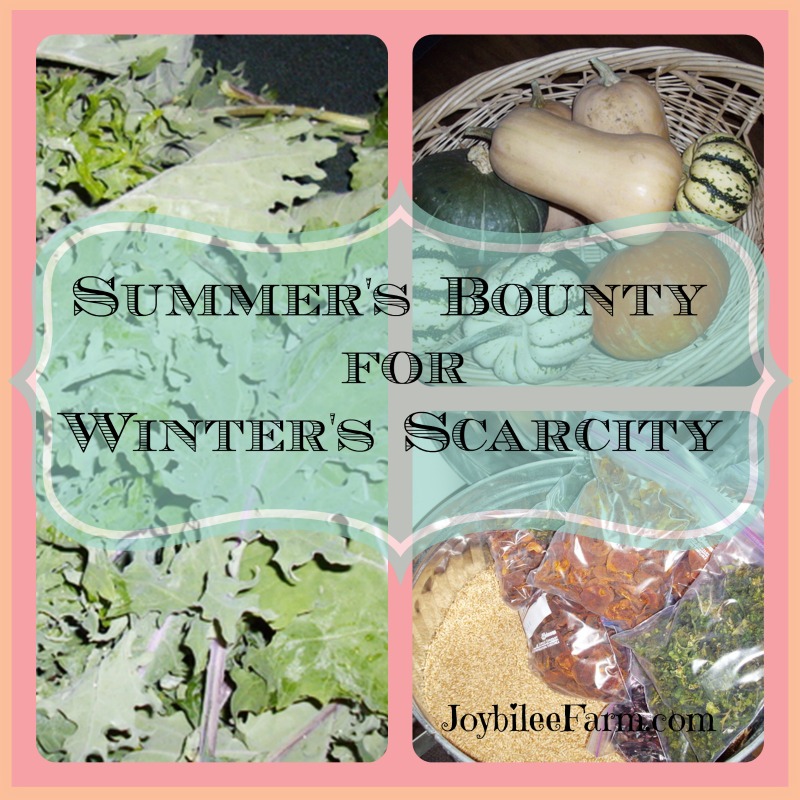
Books to help with food preservation
This is my most referenced book for food preservation. If you only get a few books on canning, dehydrating, and food preservation this one should be in your personal library.
Putting Food By Fifth Edition


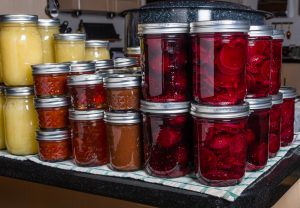
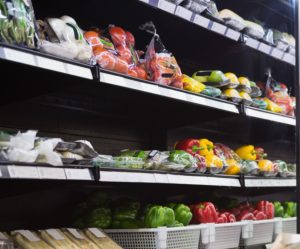
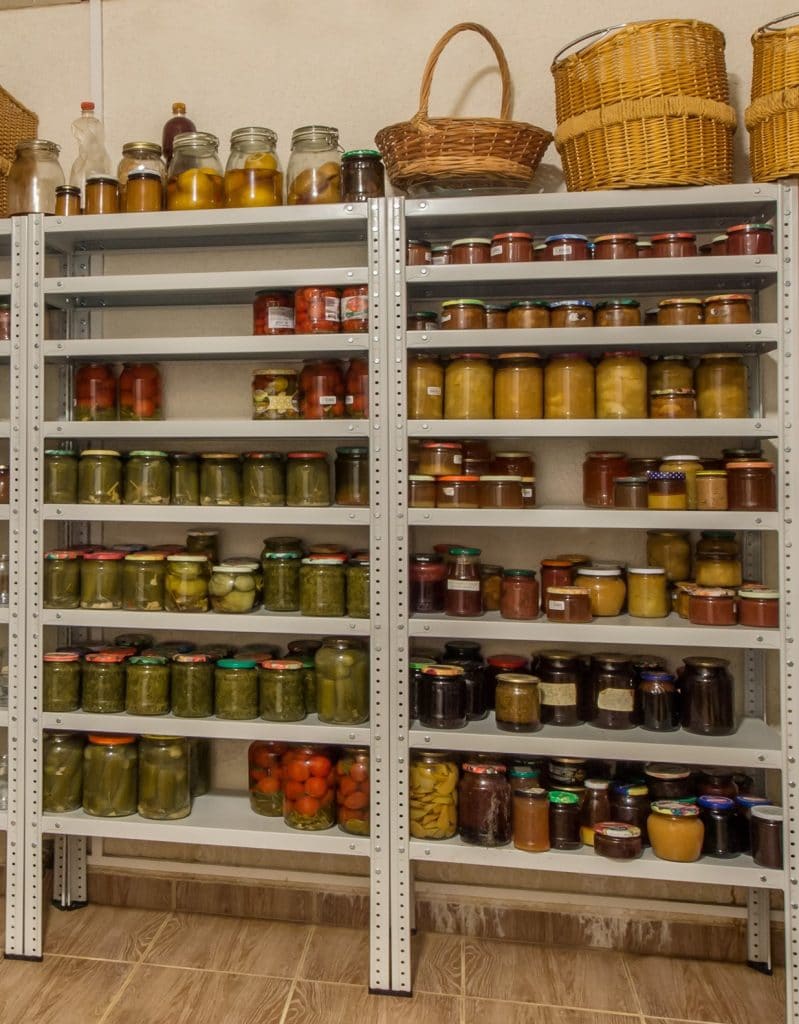

Today, thanks to the Vitamix, I shredded 12 cups of zucchini in seconds and got it and some wild plums in the freezer in bags. I have blueberry sauce, cherry sauce and raspberries in there too. Yes, I’m depending on the freezer at this point, but it’s a start.
I only used the dehydrator this year for mint leaves at their peak to make tea.
I’d love to have pickled beets and tomatoes of my own (or canning my spaghetti sauce), or cooking and canning the dry beans I have for convenience (I do my freezer trick with them too sometimes), but I confess to being intimidated by canning. I’ve done it as part of a group before, and that’s fun and productive. But doing it alone? I guess that’s on my list of things to conquer in the next year.